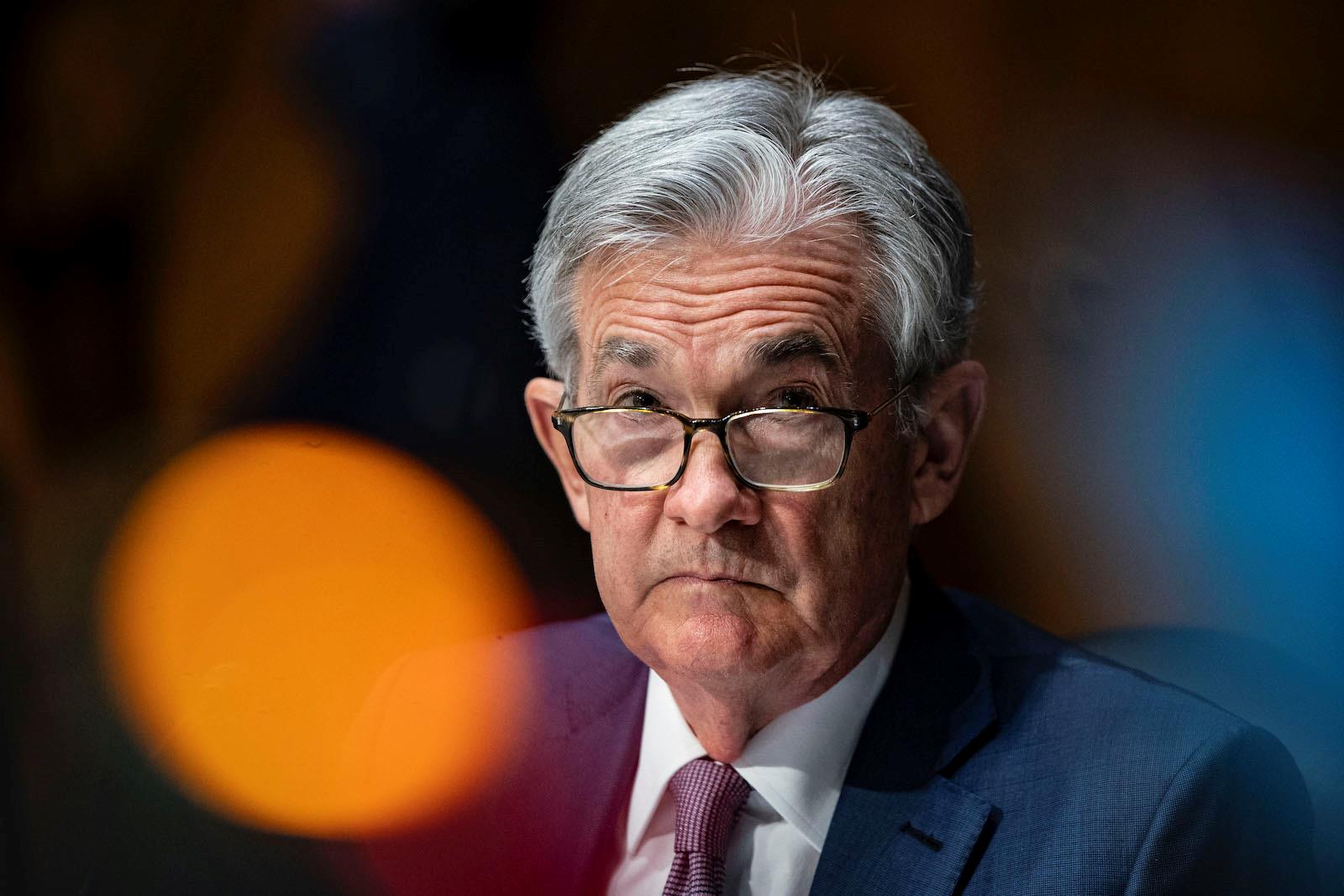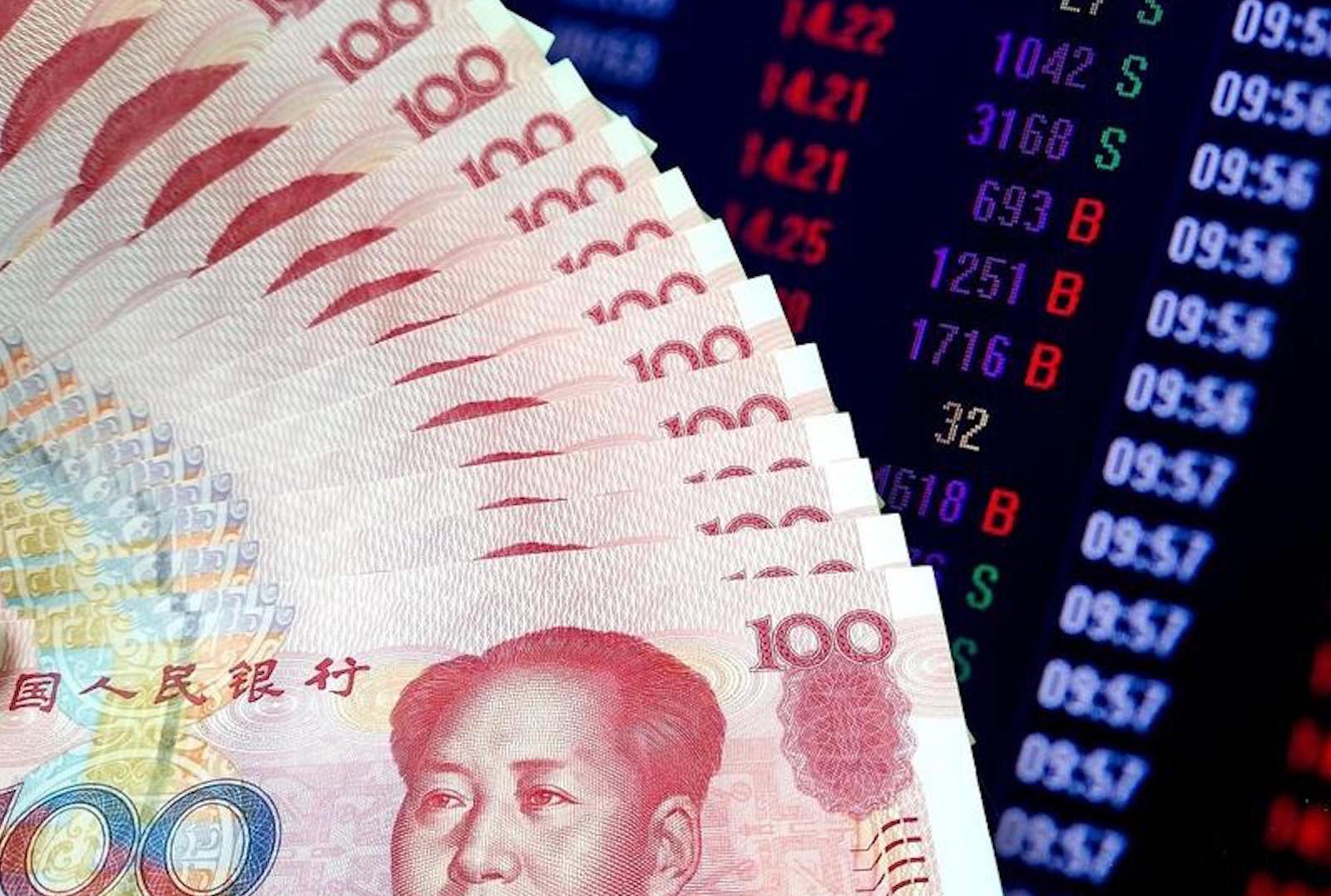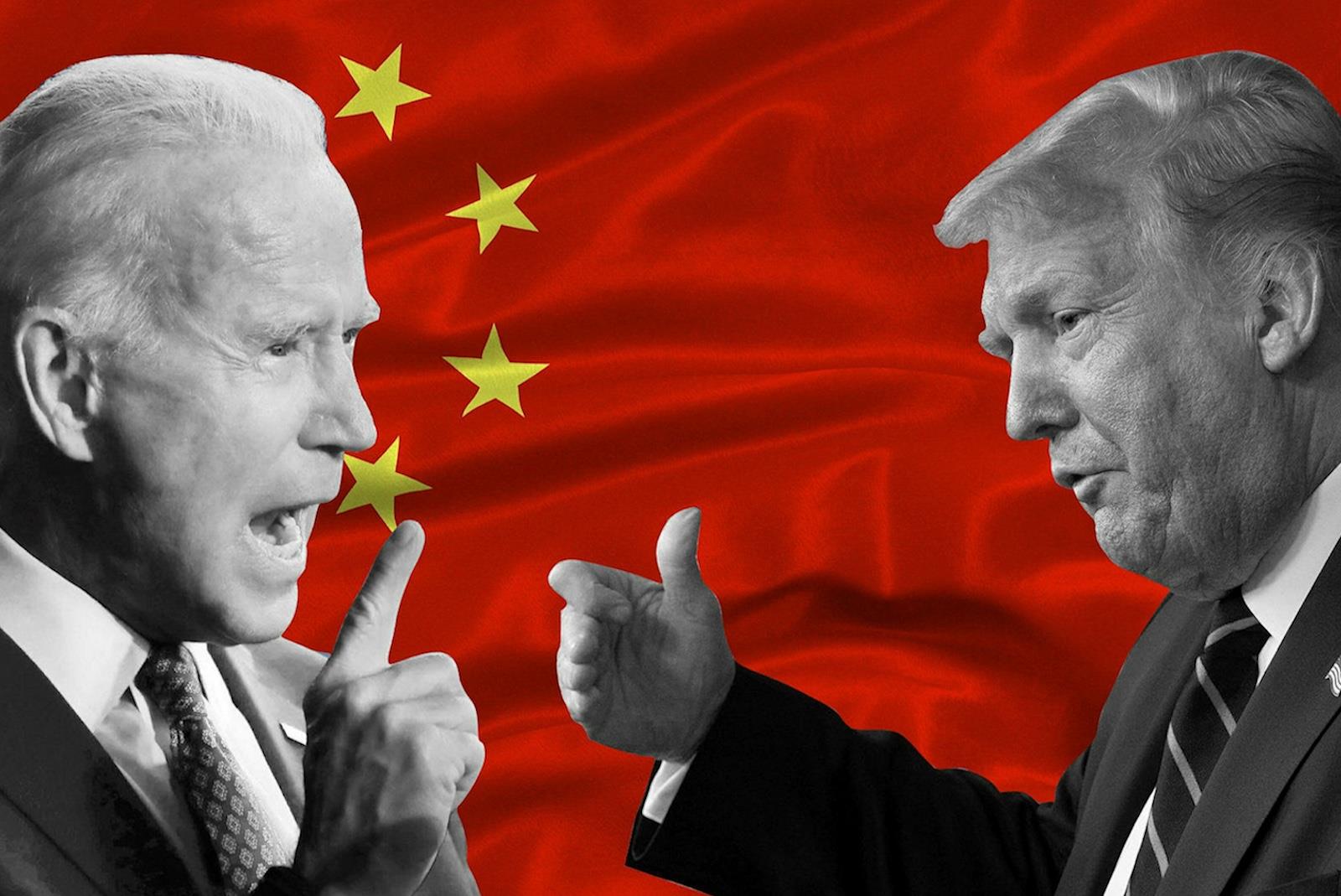
Asia Starting To Feel Like 1997-98 All Over Again
The odds are still low that Fed Chairman Jerome Powell's team will raise borrowing costs anytime soon. But near-universal earlier expectations in Asia were that the US central bank would be easing between five and seven times this year.
Such bets are going awry as US inflation remains stubbornly high. It rose at a 3.4% rate in April year on year. Though far below the 9.1% peak in mid-2022, inflation is still too far away from the Fed's 2% target for comfort.
This week, Goldman Sachs CEO David Solomon said he doubts the Fed will cut rates in 2024.“I still don't see the data that's compelling to see we're going to cut rates here,” he said at a Boston College event.
At the same time, Solomon noted, persistently high inflation is squeezing American households. He cited recent earnings shortfalls at companies from McDonald's Corp to AutoZone Inc to make the case that high prices are hitting consumption.
“If you're talking to CEOs that are running businesses that really deal with what I'll call the middle of the American economy, those businesses have been starting to see change in consumer behaviors,” Solomon said.“Inflation is not just nominal. It's cumulative, and so everything is more expensive. You're starting to see the consumer, the average American, feel this.”
The Fed, though, won't see these dynamics as a reason to slash borrowing costs significantly, at least not this year. Stagflation is a live risk as oil prices surge amid rising turmoil in the Middle East. The risk rises if the US Congress doesn't act boldly to increase productivity and competitiveness.
As JPMorgan Chase CEO Jamie Dimon tells the Wall Street Journal, America“looks more like the 1970s than we've seen before. Things looked pretty rosy in 1972. They were not rosy in 1973.”
All this is rapidly changing the calculus for Asian policymakers.
“We believe that the bar to cut rates and the risk of a delayed easing cycle have gone up in Asia,” Nomura Holdings economists write in a note.“With repricing of Fed rate cuts and a stronger US dollar backdrop, Asian central banks will want to maintain some relative interest-rate differentials, else they risk weaker currencies and higher imported inflation.”
Nobel laureate Paul Krugman is as perplexed as anyone when it comes to predicting the outlook for US yields.“On interest rates, I am fanatically confused,” Krugman tells Bloomberg.“Anyone who claims to know for sure what the answer is to that is deluding themselves.”
The same goes for the trajectory of the dollar, another asset Asia thought would weaken in 2024. As Powell extends the“higher for longer” era for yields, capital continues to zoom toward the US. This dynamic is depriving Asian economies of capital needed to support bond and stock markets .

US Federal Reserve chairman Jerome Powell. Photo: Asia Times Files / AFP / Al Drago
“Lower-yielding Asian currencies are bearing the brunt of the repricing of [US monetary policy]” as investors“focus on the relative level of interest rates,” HSBC analysts write.
Last month, Indonesia's central bank announced a surprise 25 basis-point rate hike to support a sliding rupiah, raising the benchmark rate to 6.25%.
“This interest rate increase is [meant] to strengthen the stability of the rupiah exchange rate from the impact of worsening global risks,” says Bank Indonesia Governor Perry Warjiyo.

Amit Shah vs Yogi: the battle for Modi's legacy

Analysts: China's property stock surge unsustainable
Meanwhile, the Malaysian ringgit recently hit
26-years lows , returning to levels not seen since Asia's 1997-98 financial crisis. In Manila and Bangkok, policymakers are rethinking plans to cut rates, lest the Philippine peso and Thai baht plunge, increasing capital flight risks .
In Seoul, another nation hit hard by the previous Asian financial crisis, Bank of Korea Governor Rhee Chang-yong cautions against excessive won moves and stands ready to“deploy stabilizing measures.”
The US dollar may continue grinding higher as more and more traders come to terms with the idea the Fed is keeping interest rates steady.
“If the Fed holds steady but more jurisdictions decide to proceed with domestic easing rather than waiting on the US central bank, then policy divergence would likely keep the dollar stronger for longer,” says Kamakshya Trivedi, strategist at Goldman Sachs.
Trivedi notes that central banks in the UK, the Euro area and Canada are likely to cut rates next month. European Central Bank President Christine Lagarde signaled that a cut is likely as consumer-price pressures ease.
That's likely to extend gains in the dollar, which has risen markedly in all of the 10 biggest industrialized nations. It's already up 11% versus the Japanese yen and 2% against the euro so far this year.
Krugman has lots of company as he struggles to discern where Fed rates are headed. So are Fed officials, who seem all over the map on whether rate cuts might happen this year.
For example, Fed Governor Christopher Waller says a softening in US data over the next three to five months could create space for a rate cut toward the end of 2024.
“The economy now seems to be evolving closer to what the Committee expected,” Waller says.“Nevertheless, in the absence of a significant weakening in the labor market, I need to see several more months of good inflation data before I would be comfortable supporting an easing in the stance of monetary policy.”
Recent consumer price trends leave Waller“hopeful that progress toward 2% inflation is back on track.” The Fed, he adds, can“probably” rule out hiking rates. Yet, Waller admits, some senior Fed officials are more open to tapping the monetary brakes if need be.
The process is sure to keep Asia on edge.“Where macro and potential policy divergence has been more apparent, policymakers have kept a keen eye on Fed shifts to limit the extent of currency volatility,” Trivedi notes.
Yet the Fed holding rates higher than Asia believed back on January 1 is a major blow to a region uniquely on the front lines of Fed policy decisions a world away.
Case in point: People's Bank of China Governor Pan Gongsheng, who's been hinting at rate cuts in recent months. Though China's gross domestic product expanded by 5.3% in the first three months of 2024, retail sales and household confidence remain weak amid a deepening property crisis.
Yet the PBOC's latitude to cut rates may depend more on what Fed officials do in Washington than economic conditions in Beijing. As Pan's team seemingly understands better than some peers, an extension of the“higher for longer” yield era will make it harder to cut rates without the currency weakening significantly against the dollar.
There are myriad reasons why the PBOC is reluctant to let the yuan weaken in a big way.

China doesn't want the yuan to depreciate in a big way. Image: Twitter
One, it could make it harder for property development giants to keep up with offshore bond payments, heightening default risks. Two, it could squander progress made on Chinese leader Xi Jinping's watch to increase global trust in the yuan. Three, it could make China an even bigger US election flashpoint in the lead-up to November 5 elections, if that's possible.
In the interim, Xi is stepping up state-led efforts to buy up the inventory of unsold homes to stabilize the property sector.
“The new property measures are unlikely to deal with
the full overhang of unsold homes given the PBOC's
new facility's initial size,” says economist Mansoor Mohi-uddin at Bank of Singapore.“But the aid is likely to be
scaled up if it proves successful.”
Analysts at UBS Global Wealth Management write that“securing adequate funding remains a key question and it is unclear if this will be sufficient to restore consumer confidence and draw buyers back into the market.”
As Xi's government fine-tunes its property rescue plan, the PBOC may be under pressure to add giant waves of fresh liquidity . Yet the onus is also on governments like China's to accelerate efforts to recalibrate growth engines.
The Asia region remains too export and dollar-centric for comfort. Though formal currency pegs are gone, export-dependent Asia still turns on the dollar's exchange rate. Here, foreign exchange trends from Seoul to Jakarta smack of déjà vu for many global investors.
A top cause of Asia's 1997-98 crisis was a runaway dollar pulling in huge waves of capital from all directions. In 2024, this dynamic is wreaking fresh havoc as the world's biggest economy defies recession predictions year after year.
The Fed's reluctance to ease, meanwhile, is increasing the gap in interest rate differentials, causing new strains on Asian central banks. It's making it harder and harder for emerging market monetary authorities to tame local debt markets.
Among the biggest wildcards: how a US national debt approaching $35 trillion collides with toxic electoral politics in Washington.
Some of this risk stems from the extreme political polarization imperiling Washington's credit rating. Last August, when Fitch Ratings yanked away America's AAA credit score , it cited the polarization behind the January 6, 2021 insurrection among the reasons.

Sign up for one of our free newsletters
- The Daily ReportStart your day right with Asia Times' top stories AT Weekly ReportA weekly roundup of Asia Times' most-read stories
Ditto for President Joe Biden's Democrats and Republicans loyal to Donald Trump playing games over the US debt ceiling. Such bickering might worry Asia less if not for the fact Washington's debt is
twice the size
of China's annual GDP and more than eight times Japan's.
Another concern is Washington's sharp mercantilist pivot since 2017. Then-president Trump slapped huge tariffs on Chinese goods and global steel and aluminum. When Biden arrived, he left Trump's trade war in place - and added new layers of China-targeted curbs.
Now, as Trump threatens 60% tariffs on all Chinese goods, Biden is trying to out-Trump“The Donald” with a 100% tax on China-made electric vehicles. This trade-tax arms race is drawing retaliation threats from Xi's government, including tariffs as high as 25% on imported cars.
Might this tariff one-upmanship further dent faith in US Treasury securities, of which Beijing holds $768 billion? Or do more damage to the US economy than China's?

Both presidential candidates want to penalize China through greater tariffs on its products. Image: X Screengrab
“These
policies are more likely to hurt than help the lower- and middle-income Americans they purport to benefit,” says economist Kimberly Clausing at the Peterson Institute.
Adds Ryan Sweet, an economist at Oxford Economics:“Most economists view tariffs as a bad idea because they prevent a country from reaping the benefits of specialization, disrupt the movement of goods and services, and lead to a misallocation of resources. Consumers and producers often pay higher prices when tariffs are implemented.”
That could mean less US demand for Asian goods. Asia also worries about a mistake by the Fed. Though the Fed didn't cause the conditions that led to the 2008 Lehman Brothers crisis, its misreading of deep tensions in credit markets in 2007 exacerbated the carnage. By the time debt markets were seizing up, it was too late for Fed rate cuts to contain the financial chaos.
In recent months, as the Fed slow-walked rate cuts, many economists questioned whether more medium-size lenders might be facing Silicon Valley Bank-like reckonings.
Similar concerns are rising about an intensifying crisis in commercial property, which faces a post-pandemic crisis. Joel Pruis, senior director at Cornerstone Advisors, calls it a“perfect storm” of high interest rates amid an“over-concentration” of lending in commercial office space.
Any resulting market chaos will put Asia's open, trade-reliant economies in harm's way. And in ways few in the region ever saw coming, never mind the Summers' and Krugman's of the world.
Follow William Pesek on X at @WilliamPesek
Thank you for registering!
An account was already registered with this email. Please check your inbox for an authentication link.

Legal Disclaimer:
MENAFN provides the
information “as is” without warranty of any kind. We do not accept
any responsibility or liability for the accuracy, content, images,
videos, licenses, completeness, legality, or reliability of the information
contained in this article. If you have any complaints or copyright
issues related to this article, kindly contact the provider above.


















Comments
No comment